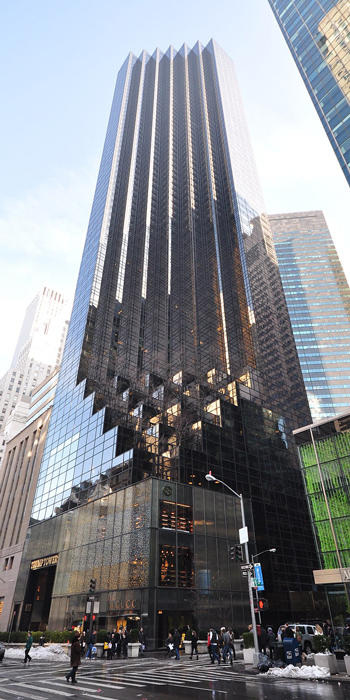Several properties that would likely face fines under the city’s “Green New Deal” are older apartment buildings throughout the city.
The legislation imposes penalties of $268 for each ton of carbon above the greenhouse-gas emissions cap for privately owned buildings. Mayor Bill de Blasio, on the eve of his presidential run, recently went to Trump Tower to warn President Trump that he would have to pay fines if his buildings don’t lower their carbon emissions and released a list of eight Trump buildings in Manhattan that would face penalties if they don’t make improvements. He announced his campaign for the presidency soon after.

Trump Tower at 725 5th Avenue (Credit: Wikipedia)
An analysis by the Wall Street Journal found that almost 20 percent of all buildings throughout New York City would face a penalty in 2024, while 80 percent would face one in 2030 based on their current patterns of energy use. Manhattan properties made up 46 percent of the buildings.
The legislation would also impact several Queens co-ops. The Council of New York Cooperatives & Condominiums has identified 10 co-ops with 2,600 apartments that would be fined a total of $1.36 million in 2024 if they do not make improvements to their energy profiles.
Walter Hartnett, vice president at engineering and consulting firm Thornton Thomasetti told The Real Deal earlier this month that owners of older residential complexes will be in a pickle.
“It’s very difficult to enhance those types of assets without a meaningful capital improvement, essentially a reclad or an overclad,” he said. “And at that point there’s large costs.”
“It’s one thing to create a tax to incentivize compliance, but it’s a different thing to create something that… effectively would bankrupt what would be a relatively small co-op,” said Time Equities’ Francis Greenburger. [WSJ] – Eddie Small
